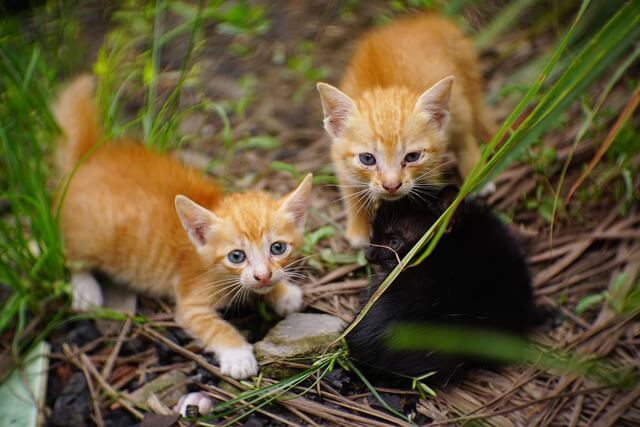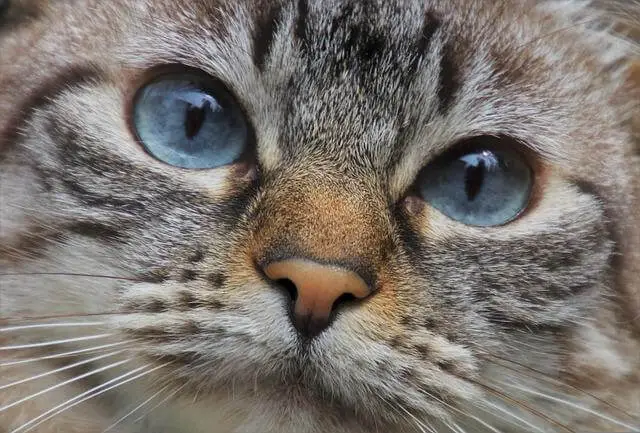FIP In Cats - Symptoms, Types & Treatment
06.08.2022.
FIP, or feline infectious peritonitis, is a serious health problem affecting our beloved cats. This is not a common disease that cats are diagnosed with, but you must know that if your cat develops this disease outcome will be, in most cases, fatal. The main problem is that FIP can be very difficult to diagnose and can affect different organs. Stay with us and find out all bout FIP in cats, what are known symptoms and how to help your cat.
What is FIP in cats?
Before explaining FIP, first, we have to talk about feline coronavirus. Feline coronavirus is common in cats, and this virus will infect many of the cat population. FIP will develop when the virus mutates from feline coronavirus. Roughly estimated is that 5-10% of all cats that develop feline coronavirus will develop FIP.
This virus will, in most cases, affect younger cats under the age of 2, but take note that this virus can affect all cats.
GOOD TO KNOW: Feline coronavirus and human coronavirus, known as COVID-19, are not the same, and they don't cause the same disease. Also, feline coronavirus cannot infect humans.
Are certain cat breeds more prone to FIP?
As we already said, all cats can develop FIP, but this disease is most common in younger cats. Research showed that 70% of all FIP cases are developed in cats under the age of two. Also, some cat breeds are more prone to this disease than others.
Cat breeds prone to FIP:
- Abyssinian
- Bengal
- Ragdoll
- Devon Rex
- Himalayan
- Birman

Some vets suggest that genetics can also be a factor in developing FIP. Vets also emphasized that FIP can be diagnosed in cats that:
- Live in a shelter
- Live in a household with other cats
- Live in catteries
- Had recent surgery
- Had other infections
RELATED: 8 Ways To Keep Your Cat Happy & Satisfied
FIP in cats' symptoms
If your cat is diagnosed with feline coronavirus, it could take a lot of time (even years) to develop FIP. Once your cat does develop FIP, it will spread fast and can cause many different symptoms.
The main problem with FIP symptoms is that they are not closely related to this disease. Your cat will start having issues that can show if your cat is diagnosed with many different conditions. There are no specific symptoms related to FIP.
These are some symptoms that your cat can show if she is infected with FIP:
- Loss of appetite
- Fever
- Lethargy
- Loss of weight
- Depression
Types of FIP
There are two main types of FIP in cats – wet and dry. Depending on the type your cat is infected with, your cat can show different symptoms.
Symptoms of wet FIP:
- Abdomen bloating and swelling
- Lethargy
- Panting
- Heavy breathing

RELATED: The 4 Most Common Type Of Cancer in Cats & Their Treatment
Symptoms of dry FIP:
- Loss of balance
- Seizures
- Anemia
- Diarrhea
- Ataxia
- Eye problems
FIP treatment
If your cat is diagnosed with FIP, there isn't good news for your pet. Currently, there are no approved treatments to treat cats with FIP. You and your vet can perform a few things to remove discomfort for your cat, but this will not cure your cat. Since this disease is highly fatal, most vets will suggest euthanasia to relieve your cat from suffering.
Experimental drugs
Some experimental drugs are being tested but are not available for treatment. However, there is little good news regarding these experimental drugs that suggest that soon, FIP could be treatable in some ways. This drug showed good efficiency for non-effusive FIP, and it is still in the testing period, and this drug is not available for treatment.
RELATED: Distemper in Cats: Symptoms, Treatment & Prognosis
How long can a cat live with FIP?
There isn't much good news for your cat if she is diagnosed with FIP. Most cats will die within a few weeks after diagnosis, and there are no treatments to help your cat. Because of that, many veterinarians will suggest euthanasia to make it easier for the cat.
Is FIP contagious to other cats?
FIP can be contagious to other cats; this virus is easily spread within shelters, multi cats households, and catteries. If one of your cats is diagnosed with FIP, other cats in your household have a higher chance of conducting feline coronavirus. The good news is that only a small portion of cats will develop this fatal disease.
If one of your cats had FIP and dies, veterinarians suggest you wait at least three months before you can see if there are any signs that your other cats also get infected with feline coronavirus. If your other cats do not show any clinical signs of this disease, they could be carriers of the disease, and they can infect any new cat you bring into the household, and because of that, you must be very careful if one of your cats was diagnosed with FIP.
FIP in kittens
Kittens can also get infected with feline coronavirus and develop FIP. In most cases, they will contact the virus from their mothers. Many cats carry virus in the organism, but most cats will not develop this disease.
Symptoms of FIP in kittens will be the same as with older cats.
RELATED: 5 Most Common Reasons Why Does My Cat Stare At Me
How can I prevent my cat from getting FIP?
To completely eliminate changes for your cat getting diagnosed with FIP, you must protect your cat from developing feline coronavirus. This can be very challenging, considering that many cats could quickly develop this disease without you knowing.
You should be extra careful if you live in a multi-cat household. Feline coronavirus is highly contagious, but the good news is that FIP isn't. In most cases, FIP will develop in individual cats after they develop feline coronavirus, and FIP cannot spread that quickly.
Feline coronavirus is usually spread over the face and saliva of infected cats. To prevent your cat from developing this disease, keep litter boxes clean and other places your cats like to spend time.
RELATED: 3 Main Reason Why Is My Cat Peeing Everywhere
Conclusion
FIP in cats is very dangerous, and if your cat is diagnosed with this disease, you don't have much time with your cat. To prevent this from happening, you must prevent your cat from conducting feline coronavirus, and to do so, you must keep your house clean, regularly clean litter boxes, and all other places your cats like to spend time in.
World Cat Finder Team







Share